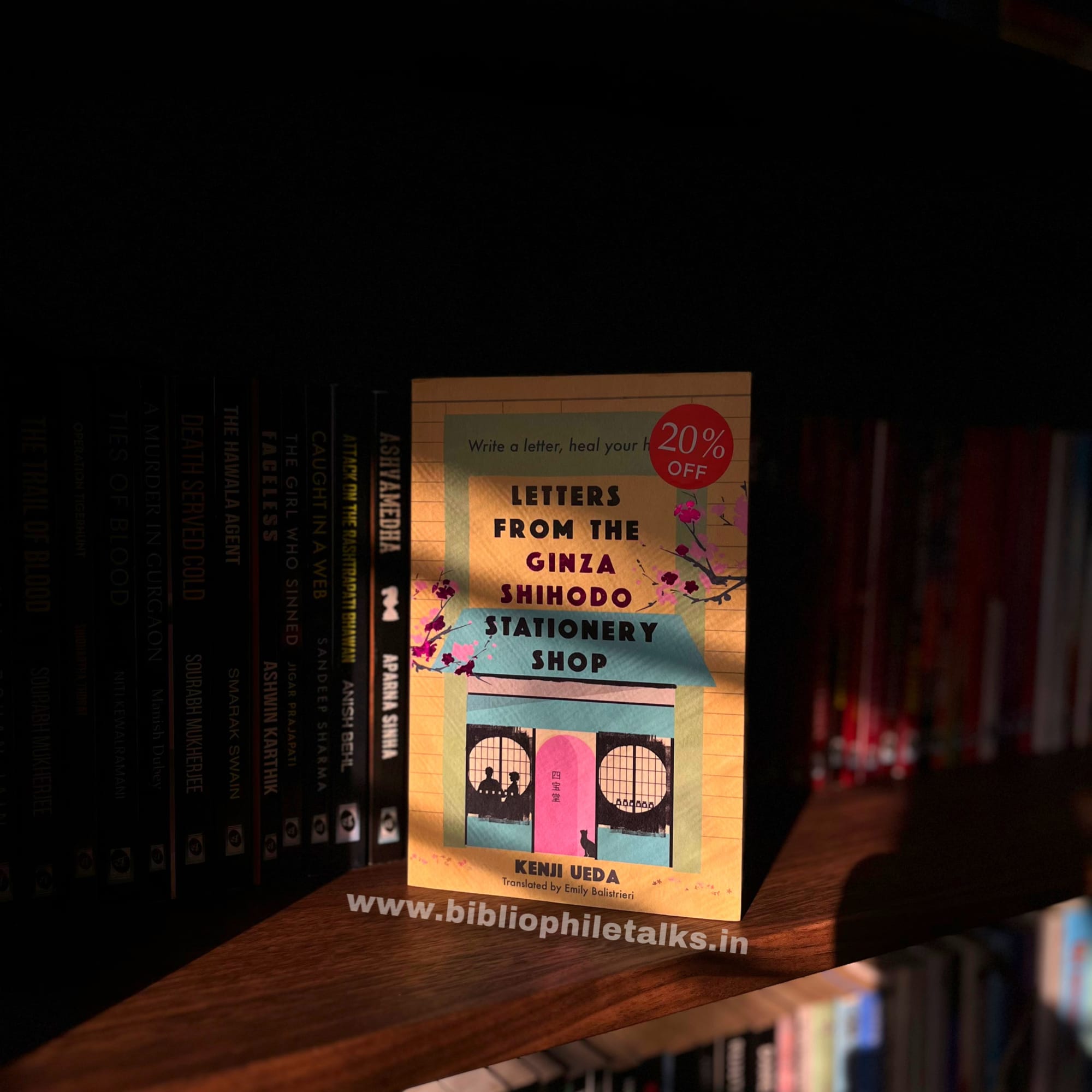LETTERS FROM THE GINZA SHIHODO SHOP

𝗟𝗲𝘁𝘁𝗲𝗿𝘀 𝗙𝗿𝗼𝗺 𝗧𝗵𝗲 𝗚𝗶𝗻𝘇𝗮 𝗦𝗵𝗶𝗵𝗼𝗱𝗼 𝗦𝘁𝗮𝘁𝗶𝗼𝗻𝗲𝗿𝘆 𝗦𝗵𝗼𝗽
𝗕𝘆 𝗞𝗲𝗻𝗷𝗶 𝗨𝗲𝗱𝗮
𝗣𝘂𝗯𝗹𝗶𝘀𝗵𝗲𝗿: 𝗠𝗮𝗻𝗶𝗹𝗹𝗮 𝗣𝗿𝗲𝘀𝘀
𝗣𝗮𝗽𝗲𝗿𝗯𝗮𝗰𝗸: 𝟐𝟐𝟒
𝗣𝘂𝗯𝗹𝗶𝘀𝗵𝗲𝗱: 𝟏𝟓𝐭𝐡 𝗗𝗲𝗰𝗲𝗺𝗯𝗲𝗿 𝟐𝟎𝟐𝟒
𝗚𝗲𝗻𝗿𝗲: 𝗟𝗶𝗳𝗲 𝗢𝗳 𝗦𝗹𝗶𝗰𝗲
𝗝𝗮𝗽𝗮𝗻𝗲𝘀𝗲 𝗪𝗿𝗶𝘁𝗶𝗻𝗴
𝗥𝗲𝗮𝗱𝗶𝗻𝗴 𝗬𝗲𝗮𝗿: 𝟐𝟎𝟐𝟓
"Letters from the Ginza Shihodo Stationery Shop" is a heartwarming collection of interconnected stories that unfold in a charming stationery shop run by the kind and perceptive Ken Takarada. Each customer who steps into the shop brings a unique purpose, seeking not just stationery but a means to express deeply personal emotions. Whether it's a young man writing to his grandmother with his first salary, a hostess club employee penning a resignation letter for a supportive manager, a Kyudo club vice-captain sharing her heartfelt sentiments, a grieving businessman composing a memorial address for his late ex-wife, or a chef expressing gratitude to his mentor, every tale resonates with themes of appreciation and genuine human connection.
These stories beautifully highlight the selflessness, kindness, and love that bind people together. The grandmother raising her grandson as her own, Fumi-Mama (Club Owner)nurturing her employees' dreams with care, the innocence of first love, a wife cherished the romance in her marriage, and a mentor's generosity toward his protégé—all these moments touched my heart profoundly. Each character's journey felt authentic and deeply moving, leaving me with warmth and appreciation for life's quiet joys.
The book's format, reminiscent of "Kamogawa Food Detectives", seamlessly weaves individual stories into a cohesive narrative. Readers are taken into the lives of the shop's customers, reflecting on their challenges and triumphs. This episodic style keeps the narrative engaging, offering a delightful variety of characters and emotions without feeling repetitive.
Ken-chan, the compassionate stationery shop owner, stood out to me. His intuitive understanding of what each customer needed was both endearing and inspiring. The language is straightforward, making the book an easy read. While I found some aspects of the translation slightly off, the overall narration remains compelling.
If you enjoy slice-of-life genres or books like Before the Coffee Gets Cold, Kamogawa Food Detectives, or Days at the Morisaki Bookshop, you'll love this. It offers a tender exploration of human emotions, wrapped in the comforting ambience of a small stationery shop. Pick it up - you won't regret it!
The Translator: Emily Balistrieri is a celebrated translator specializing in Japanese literature, known for works like Tomihiko Morimi's The Tatami Galaxy and The Night is Short, Walk on Girl. His portfolio includes Eiko Kadono's Kiki's Delivery Service and Shaw Kuzki's Soul Lanterns. Based in Japan, Emily excels at capturing cultural nuances, making Japanese stories accessible to global readers. Openly trans, he often works on projects exploring identity, such as Until I Love Myself. His dedication to bridging cultures through translation has enriched the literary world, making him a prominent voice in contemporary Japanese-English translation.
My Rating:
4/5
NOTE: In this blog, the CONTENT and PICTURES are owned by Samayra Singh, and cannot be used or distributed without permission. Strict legal action will be taken against any infringement.